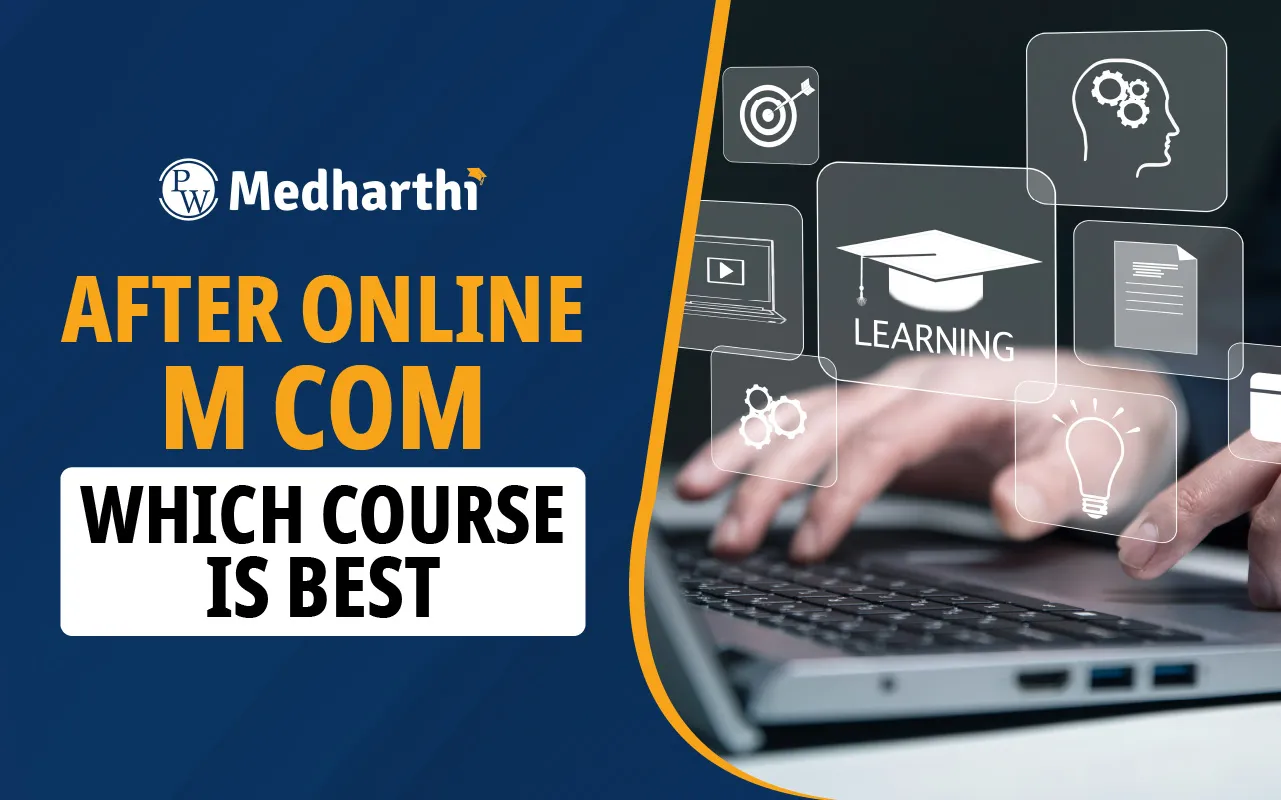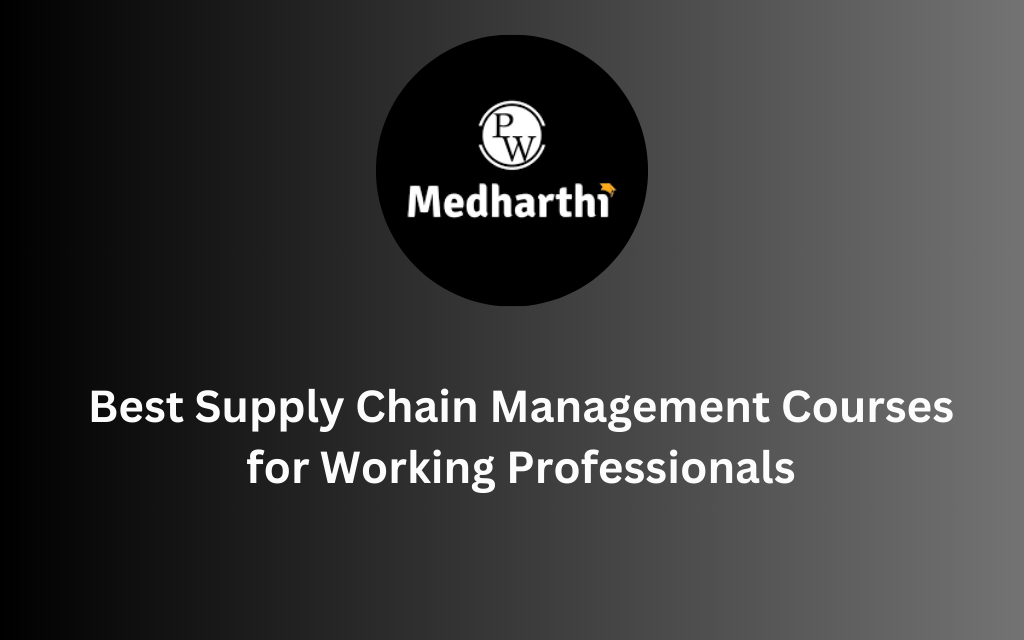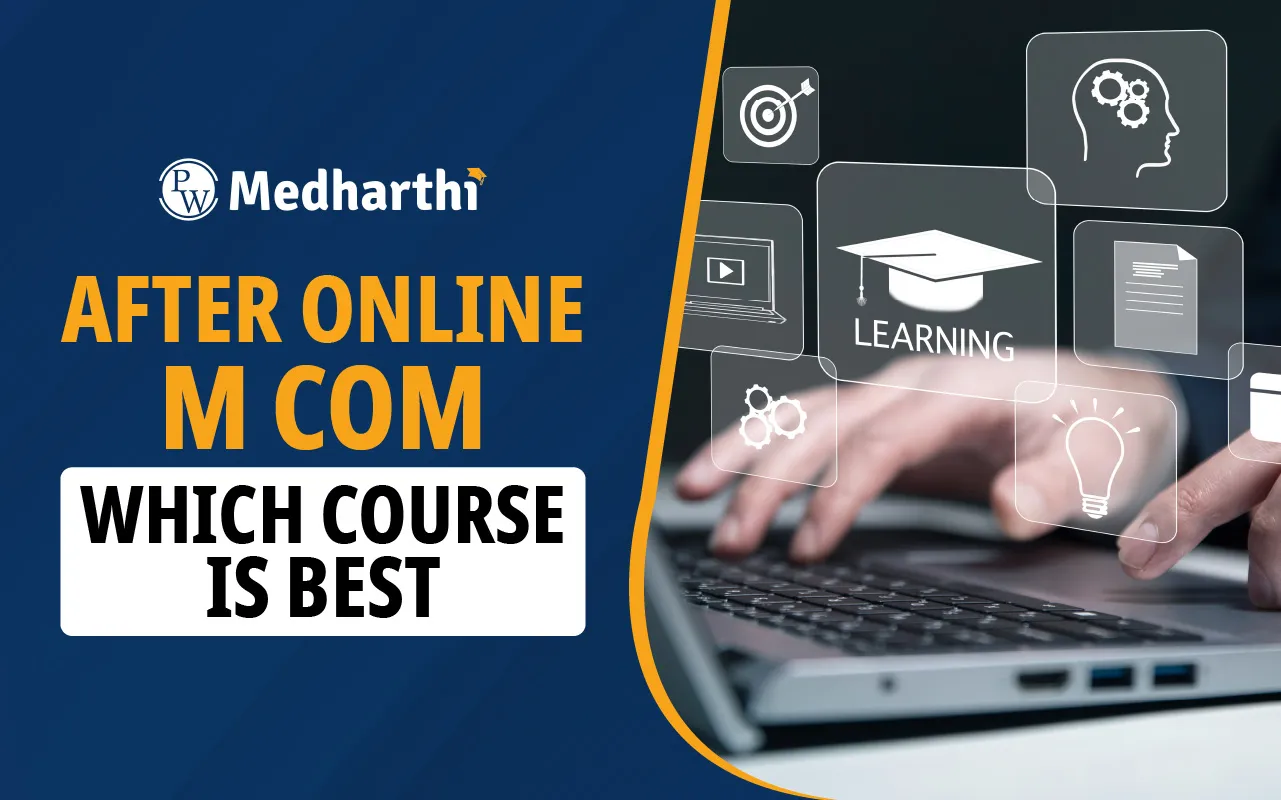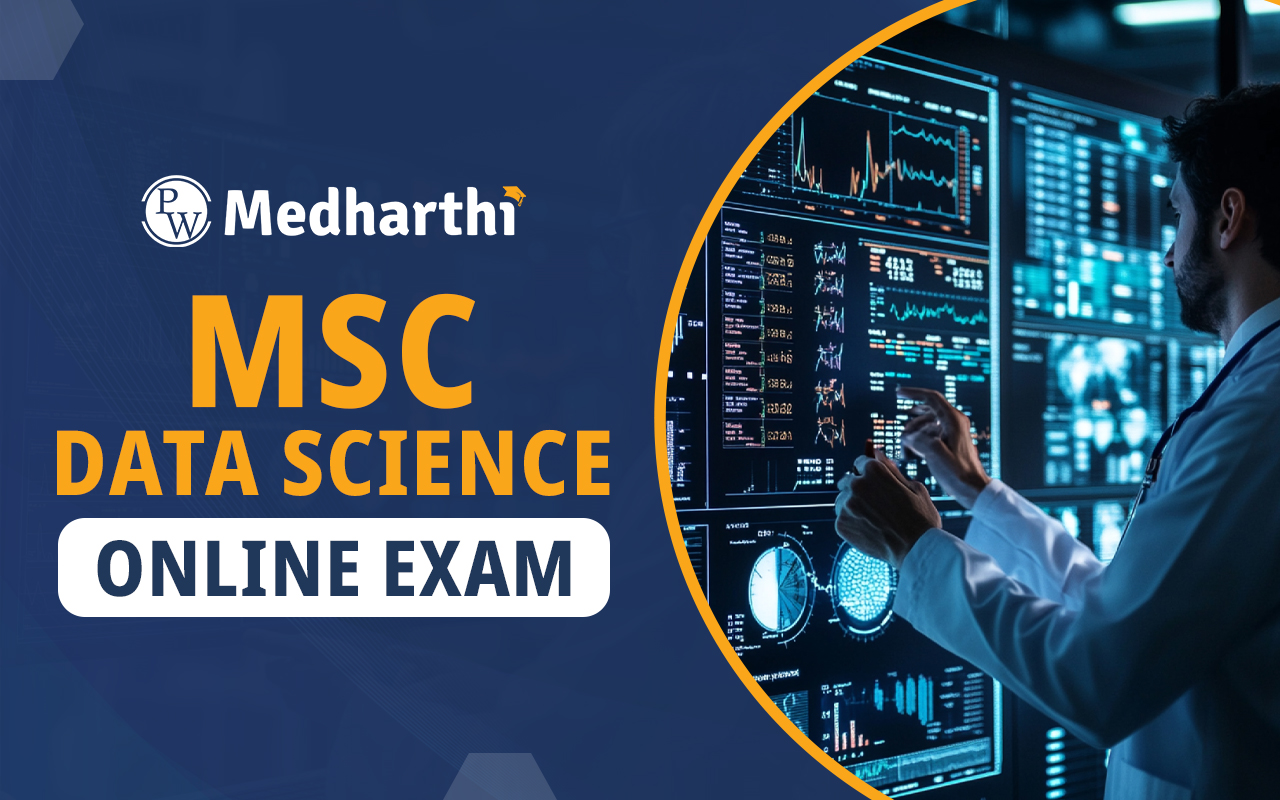
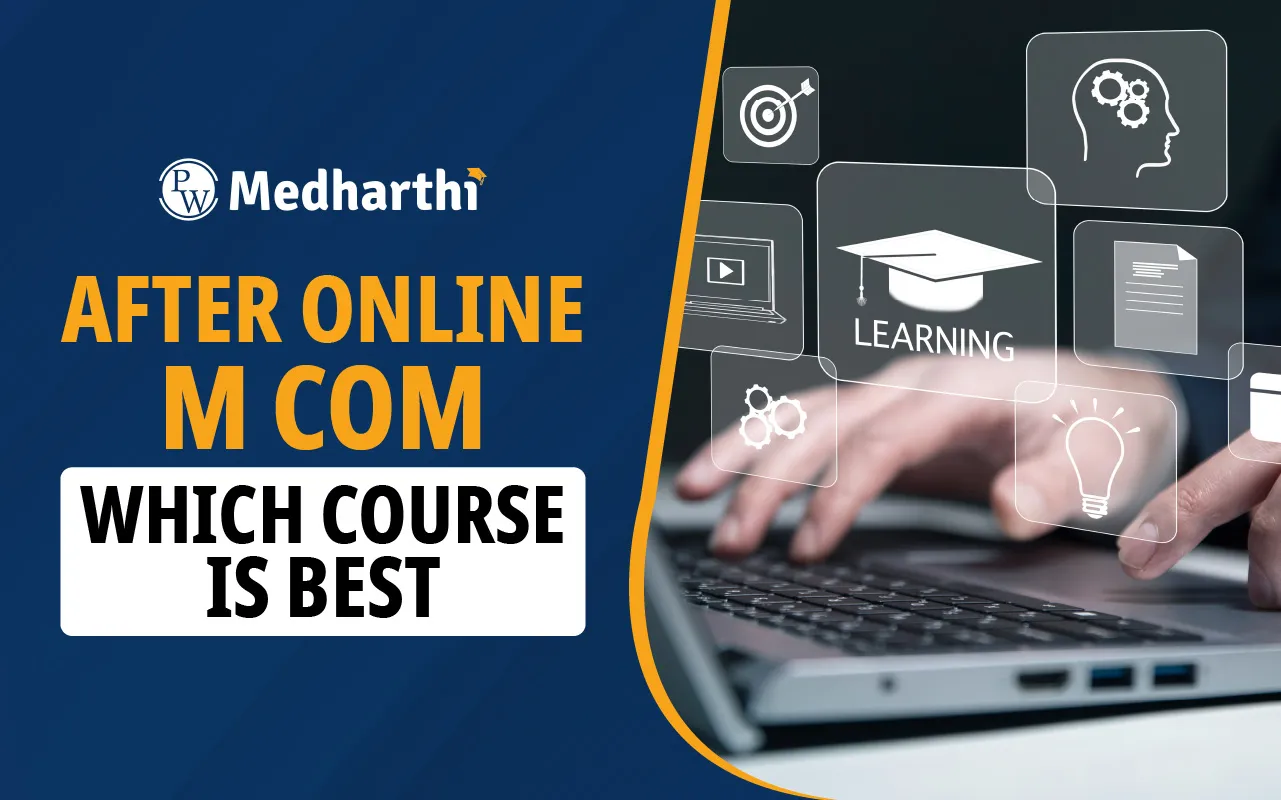
Pursuing additional online qualifications after completing an Online Master of Commerce (Online M.Com) can significantly enhance career opportunities and professional skillsets. The decision of after Online M.Com which course is best depends largely on individual goals, domain interest, and industry trends. Various online options are available in finance, taxation, analytics, and education, providing flexibility and accessibility for working professionals and full-time learners alike.
After Online M.Com Which Course Is Best?
After completing an Online M.Com, selecting the right follow-up course hinges on career ambitions. A variety of online professional and academic courses in finance, accounting, data analytics, taxation, and education help graduates gain relevant, in-demand skills in a digitally accessible format.
Chartered Accountancy (CA)
For those interested in accounting, auditing, and taxation, CA remains a sought-after certification, even post Online M.Com with a strong commerce foundation, learners can pursue CA through online preparatory platforms that offer video lectures, mock tests, and doubt-clearing sessions. It includes rigorous training and exams aligned with the corporate finance and accounting domain.
Company Secretary (CS)
CS is ideal for learners targeting corporate law and governance roles. Online CS courses provide structured guidance for all three levels: CSEET, Executive, and Professional. Online M.Com graduates find CS a strategic fit for corporate legal compliance and company law roles, especially when studied flexibly alongside work.
Cost and Management Accounting (CMA)
If you’re asking after Online M.Com which course is best for expertise in cost control, budgeting, and financial analysis, CMA is a strong contender. Offered by the Institute of Cost Accountants of India, online CMA prep courses enable commerce graduates to master costing strategies and financial planning for organizations.
Certified Public Accountant (CPA)
A global certification like CPA is ideal for those pursuing international accounting roles. Online CPA coaching platforms prepare candidates for the US GAAP, IFRS, and taxation standards, helping Online M.Com graduates transition to careers in global firms or work abroad.
Online MBA in Finance
For commerce graduates seeking leadership and strategic roles, an Online MBA in Finance provides a comprehensive blend of managerial and financial acumen. The curriculum includes online classes in investment, capital markets, and corporate finance, tailored for remote learning and career acceleration.
CFA (Chartered Financial Analyst)
When considering after Online M.Com which course is best for investment banking or equity research, CFA certification stands out. Online platforms offer extensive CFA prep programs covering quantitative analysis, ethics, and portfolio management. M.Com grads often find CFA Level 1 accessible due to their academic base.
Online Data Analytics and Business Intelligence
For those aiming to combine commerce with technology, online data analytics courses offer strong career potential. These courses cover Python, Excel, SQL, Power BI, and Tableau, preparing learners for roles like financial or business data analyst. Online M.Com learners can take advantage of self-paced modules and practical projects.
Diploma in Taxation Law (Online Mode)
If you're exploring after Online M.Com, which course is best for a career in taxation, an Online Diploma in Taxation Law provides practical training in GST, income tax, and compliance. These online diplomas are ideal for aspiring tax consultants and practitioners.
UGC NET Preparation for Teaching Career (Online)
Online M.Com graduates aiming for academia can prepare for UGC NET through online coaching. These platforms provide recorded lectures, study materials, mock tests, and personalized mentorship. Qualifying UGC NET allows one to apply for Assistant Professor roles or pursue a PhD via distance or blended modes.
Online Financial Modelling and Valuation Courses
These online certifications are practical, hands-on programs focused on Excel-based modeling, valuation, and investment analysis. Designed for Online M.Com graduates, they prepare learners for roles in investment banking, private equity, and corporate strategy with the help of real-life case studies.
SAP FICO (Online ERP Certification)
SAP FICO integrates accounting knowledge with ERP systems. Online SAP FICO courses teach financial accounting and controlling modules, enabling Online M.Com holders to work in ERP roles across large enterprises. Courses are self-paced and include virtual labs and scenario-based training.
Certified Financial Planner (CFP) Online Format
CFP focuses on wealth management and financial advisory. Online CFP programs are suitable for Online M.Com grads interested in personal finance, investments, and estate planning. It’s a great fit for roles in banks, insurance firms, or as independent consultants.
Online Digital Marketing with Finance Focus
Finance professionals with marketing aspirations can pursue online digital marketing certifications, which cover SEO, Google Analytics, content marketing, and ad management. Tailored for commerce grads, these programs enable roles in finance-focused digital campaigns and fintech marketing.
Actuarial Science (Online Exams and Training)
Those with strong math skills can opt for online actuarial science training, which prepares candidates for insurance, risk management, and pension roles. Courses include online mock tests and expert-led sessions for actuarial exam series conducted by IAI or international bodies.
Factors to Consider Before Choosing a Online M.Com Course
Before deciding which course to pursue after completing an Online M.Com, it is essential to evaluate several key factors to ensure that the chosen path aligns with both personal and professional objectives. Below are important considerations to guide the decision-making process:
1. Career Goals: Define short-term and long-term professional aspirations. Whether the aim is to enter academia, corporate finance, government services, or entrepreneurship, the course should support these outcomes.
2. Subject Interest and Aptitude: Choose a specialization that aligns with personal strengths and interests. Courses in accounting, taxation, data analytics, or law demand specific skillsets that must resonate with your academic foundation and future goals.
3. Industry Demand and Relevance: Assess current and emerging trends in the job market. Opting for programs that are in high demand, such as data analytics, finance, or compliance, can enhance employability and open broader career avenues.
4. Recognition and Accreditation: Ensure the course is recognized by relevant professional bodies or educational institutions. Accredited certifications or degrees hold more value in both domestic and international job markets.
5. Course Format and Flexibility: Consider whether the course is available in a full-time, part-time, or self-paced online mode. Flexibility is especially important for working professionals or those managing multiple commitments.
| Online Degree Important Links | |
| Online MCA Programs in India | Online BCom Course |
| Regular Degree Vs Distance Degree | BA Online Registration |
After Online M.Com Which Course Is Best FAQs
Which course is suitable after Online M.Com for academic careers?
Can Online M.Com graduates pursue international certifications?
Is it necessary to pursue another course after Online M.Com?
What are the best short-term online courses after Online M.Com?
Which finance certification is most valued after Online M.Com?

